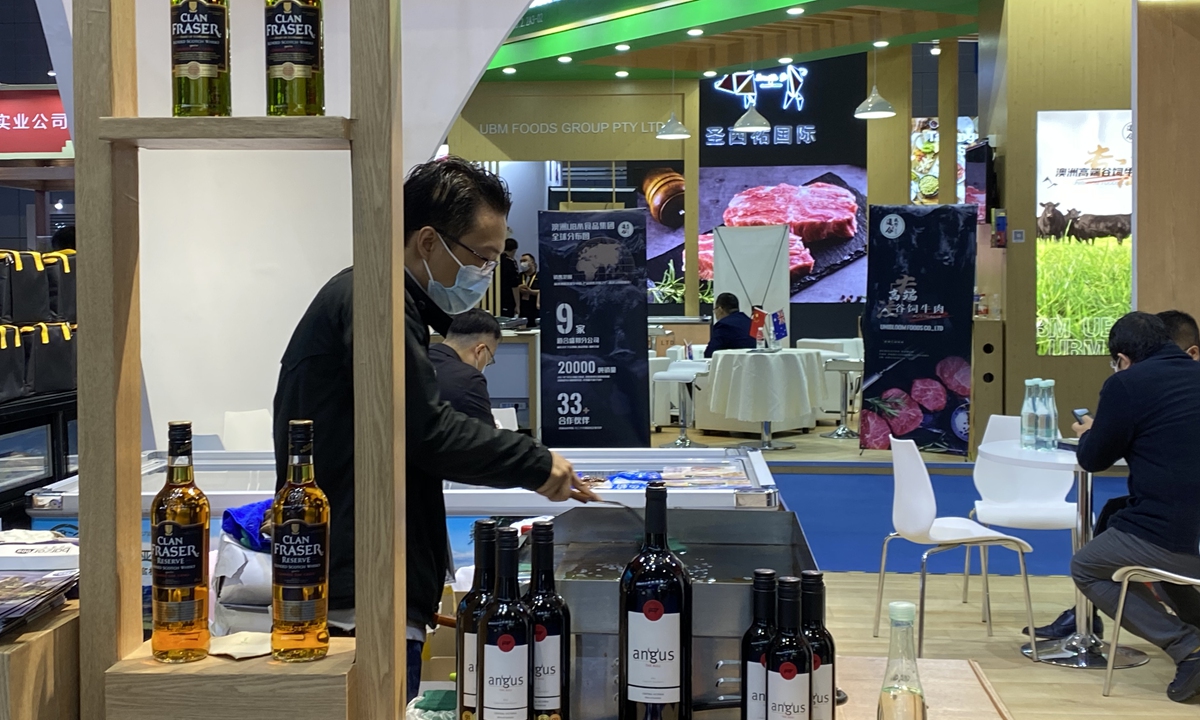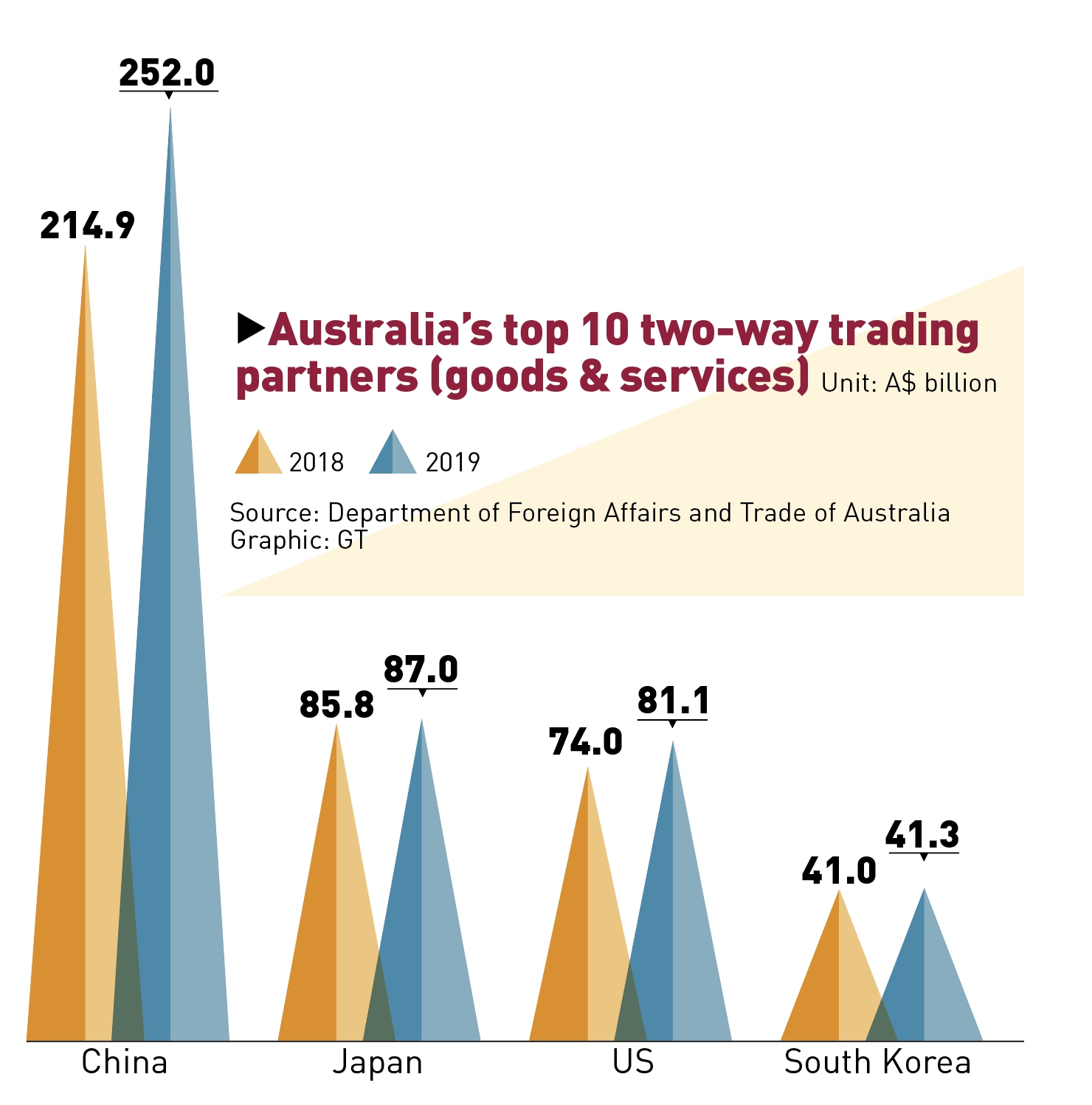Australian exporters still bullish on China
By GT staff reporters Source: Global Times Published: 2020/11/5 19:38:42
Reported restrictions don’t dim appeal

An Australia exhibitor displays cooking oil at the third China International Import Expo. Photo: Xie Jun/GT
Australian food exporters attending the 3rd China International Import Expo (CIIE) in Shanghai said that they are still attracted by and bullish on China's vast potential as the world's largest consumer market, despite fraught political ties and concerns over rumored Chinese restriction on a number of Australian products.
On Thursday, many Australian companies continued to make strong efforts to explore the Chinese market at the CIIE, one of the world's largest trade fairs, which highlights China's role as a buyer of global goods.
Despite fraught bilateral ties and reports that China had asked traders to stop purchasing at least seven categories of Australian products - from coal and sugar to wine and lobsters - multiple company representatives and traders displaying their goods at the Australian booth expressed faith in the Chinese market.
Wei Lan, director of Jiayuanhua Wines, a trader based in Shenzhen, South China's Guangdong Province that imports high-end Australian wine brands including Monteperle and Sieber, shrugged off concerns over China's possibly tightening Australian wine imports. Wei said that tighter government scrutiny of the sector will better regulate the business and prevent dumping in the low-end segment of the market.
"The fine wine niche market has huge potential with China's fast-growing affluent consumer class," Wei told the Global Times, noting that the surprisingly high value of contracts signed last year led her company to increase its presence at this year's CIIE.
"The fine wine we import will actually benefit from a more regulated market as a result of these policies," Wei said.
China has been conducting anti-dumping and anti-subsidy investigations into Australian wines since August.
Thanks to a free trade agreement, Australia's wine experts to China surged 12 percent year-on-year to $943 million in 2019, and the country became the biggest wine supplier to China with a market share of about 37 percent of yearly wine imports.
Chinese experts following China-Australia trade issues said there has been no "trade war" launched by China against Australia, and issues faced by Australian goods should be viewed on a case-by-case basis.
However, they warned that fraught ties will cast a shadow over bilateral trade as the Australian government is seen in China as a deputy sheriff spearheading the US' anti-China campaign, and its restrictions on Chinese companies have also undermined bilateral relations.
Terry Chan, regional sales manager of Australian food exporting firm Eureka Sunrise, shared this view. "Our business will definitely get a tremendous boost if the bilateral relationship improves. And vice versa," Chan said. "So far, our products have not faced any issues at the border."

Graphics: GT
Food dominated the exhibition areas for Australian brands on Thursday.
Beef, scallops and wine were on display and visitors lined up for a taste of steaks cooked on site.
But lobsters were missing, despite earlier media reports that Australian lobster exporters were attending the event to increase their exposure and expand the sector's reach in what is already a $527 million market.
Wang Fang, a purchasing director of Dalian-based Dashang Group, told the Global Times on Thursday that possible tighter supervision by the Chinese authorities of Australian goods has become a risk the company must consider.
"If the two countries enjoy a sound relationship, then as a trader we only need to consider the merchandise aspect of the business, but now we have to factor in policy risks," Wang told the Global Times on Thursday.
Foreign Ministry spokesperson Wang Wenbin said on Thursday that relevant measures taken on imported foreign goods are in accordance with China's law and international practice and aimed at safeguarding the interests of domestic industries and the safety of Chinese consumers and complied with the China-Australia Free Trade Agreement.
Posted in: INDUSTRIES,ECONOMY